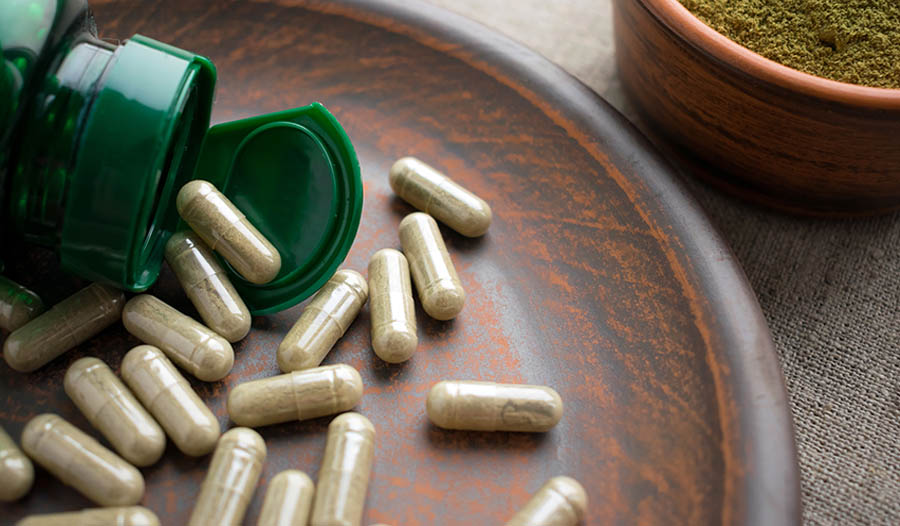5 Tips to Store and Handle Your Dietary Supplements
DISCLAIMER:This blog does not intend to provide diagnosis...

According to the 2015 Council for Responsible Nutrition Consumer Survey on dietary supplements, approximately 68% of Americans currently take some form of dietary supplements. We invest a lot of time and money into selecting the most suitable supplements for ourselves and our families. The last thing we want is to improperly store them and have them spoil halfway through the bottle.
For this reason, it’s vital to learn how to properly store and handle our dietary supplements. Let’s learn a few tips to help us protect our investment and health.
1. Read the Label
Although supplement manufacturers are not required to label storage in full swing formation or expiration dates, most of them do. Before you open the container or even purchase it, make certain to read and follow the instructions written on the label first.
You’ll notice that many liquid probiotics will recommend refrigeration (although not all), in order to keep the cultures fresh. If you purchase yours through the internet, make certain that the package is shipped overnight and in cool conditions (such as packed in ice).
Also, be cognizant of the “best if used by” date on containers. Expired supplements should be properly discarded.
2. Pay Attention to the Temperature
For some medications and supplements, sunlight, heat, moisture, and humidity will diminish their shelf life. Most non-liquid supplement recommendations are to store in cool, dark and/or dry environments. Supplements stored elsewhere are prone to “deliquescence,” a process in which humidity and condensation cause water-soluble vitamins—like B vitamins and Vitamin C—to dissolve. Interestingly, the two rooms in the home that are most commonly used to store supplements may not be the most ideal environments.
First of all, the kitchen cabinet is where many of us may be storing our medications and supplements. But it is often one of the most heated rooms in the home–cooking creates higher temperatures. In addition, storing anywhere near the kitchen sink is unsound, as it is a nidus for moisture and humidity.
Although intuitively it would seem as though the fridge would be an ideal storage area, for opened containers even small amounts of condensation can enter the bottle and create moisture and humidity. This can spoil the supplements more quickly, even before their “best if used by” date.
The second most commonly used room to store supplements is the bathroom. The bathroom sink is also a moisture-rich site. And the heat and steam released from our shower and/or bath also contributes to the faulty environment.
Lastly, remember to avoid leaving your supplements in your purse or in your car.
3. Keep the Lid Tightly Sealed
We may be in a hurry to get to work or get the kiddos to school in the mornings, but pay close attention to how you are securing the lid of the containers. Even a lid that is the smallest bit off can create an air pocket that allows exposure to the surrounding air. Be sure to seal that lid shut tight.
4. Keep Away From Children
Accidents are the top cause of death in children. And according to the Centers for Disease Control and Prevention (CDC), over 300 children in the U.S. are treated in the Emergency Department and two children die each day as a result of accidental poisoning. And the improper storage of medication and supplements is one of the causes of unintentional poisoning.
Although it most often involves children ages six and younger, it can affect kids of any age. Store your medications and supplements well out of reach, preferably in the tallest cabinet in the home.
Also, if you have children in the home (even if they only visit), place contact information for a poison control center in an easily visible spot. And add it to your cell phone directory for quick access in an emergency.
5. Discard Unused Supplements Safely
It’s imperative to visit your medicine cabinet at least once every six months in order to identify expired and unused supplements and medications. But how should you best dispose of them?
Should you flush them down the toilet? Minute amounts are thought to pass through into our rivers, streams, lakes and hence, drinking water when flushed. Although so far studies have not shown any harm, it’s best to discard medications via a different route unless specifically stated on the bottle that it’s flush-safe.
Should you throw them in the trash can? Household trash can be handled by living things–pets, children, or adults. Therefore, according to the Food and Drug Administration it’s best to:
- Mix them with something undesirable, such as used coffee grounds, dirt or cat litter.
- Place the mixture into something sealable–like a resealable storage bag or empty can to prevent it from leaking.
- Then dispose of the container in the trash can.
- Recycle the plastic container.
Another way to discard your supplements is to contact your local waste management service. Most collect and dispose of the supplement and bottles for you.
In summary, remember that it’s always best to obtain our nutrients through our diet. But if you’re unable to do so and consume supplements, following the above five tips will help ensure the efficacy and shelf-life of your dietary supplements.
Resources:
- https://www.cdc.gov/safechild/poisoning/index.html
- https://www.fda.gov/ForConsumers/ConsumerUpdates/ucm272905.htm
- https://ods.od.nih.gov/HealthInformation/DS_WhatYouNeedToKnow.aspx
- https://ods.od.nih.gov
- https://pubs.acs.org/doi/abs/10.1021/ie50452a015
- https://www.sciencedaily.com/releases/2010/03/100302162257.htm
- https://www.ncbi.nlm.nih.gov/pubmed/20163110
- https://www.nytimes.com/2010/11/02/health/02really.html?ref=health
- https://www.ncbi.nlm.nih.gov/pubmed/18593179
- https://www.ncbi.nlm.nih.gov/pubmed/18489105
- http://www.crnusa.org/CRN-consumersurvey-archives/2015
- https://www.fda.gov/ForConsumers/ConsumerUpdates/ucm101653.htm

 By Dr. Sanaz Majd, M.D.
By Dr. Sanaz Majd, M.D.


